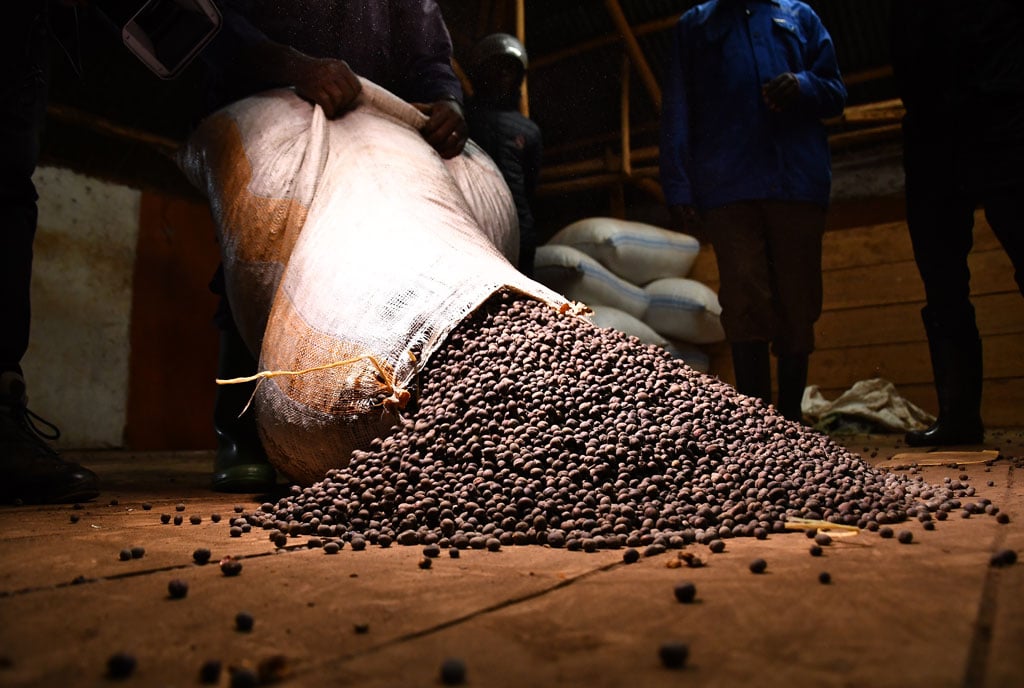
Writer: Peter Nyanzi. PHOTO/FILE
When Parliament on November 6 passed the National Coffee (Amendment) Bill, 2024, integrating the Uganda Coffee Development Authority (UCDA) into the Ministry of Agriculture, Animal Industry and Fisheries (Maaif), there was apprehension among the key stakeholders in the coffee value chain across the country.
For starters, the coffee industry is hitherto the proverbial goose that lays the country’s golden eggs. In the 2023/24 fiscal year, Uganda exported a record-breaking 6.13 million bags of coffee, valued at $1.14 billion.
This was more than the $1.025 billion that the country made from the tourism sector in the same period. This effectively puts Uganda on the list of the top six coffee exporters in the world. Whereas the government argues that incorporating UCDA as a department within Maaif would improve the coffee industry, best practice in the countries that produce a lot more coffee than us show otherwise.
Take Brazil, the undisputed leader in coffee production, with annual production of approximately 60-70 million 60-kilogram bags, as an example. The coffee industry there is run by the National Coffee Council, a private-sector-led organisation that represents coffee producers in Brazil and which plays a key role in shaping coffee policy and promoting coffee interests.
Vietnam is the second-largest coffee producer in the world. The primary institutions responsible for oversight in the coffee industry is the Vietnam Coffee and Cocoa Association - a civil society organisation and the Vietnam Coffee Exporters Association, which focuses more specifically on the export aspect of the industry.
In Ethiopia, Africa’s number one coffee producer, the primary institutions responsible for overseeing the coffee industry is the Ethiopian Coffee and Tea Authority (ECTA), a government agency, the Ethiopian Coffee Growers' Cooperatives Union, and the Ethiopian Coffee Exporters Association.
Evidently, Uganda’s decision to scrap the UCDA is not in line with international best practice. Lest we forget, Uganda also controversially withdrew its membership in the International Coffee Organisation (ICO) agreement in 2022. Withdrawal implies that Uganda is not formally engaged in the international regulatory, policy, and statistical frameworks that ICO provides to coffee-producing nations.
Uganda specifically cited barriers to exporting “value-added” processed products as one of the reasons for quitting the ICO. Of course, Uganda has the right to push its value-addition agenda.
However, it is also important to remember that USA and Europe, the world’s leading importers of raw coffee beans, have taken many decades and spent billions of dollars to perfect their coffee-processing industries and how they do it remains part of their well-kept industry secrets.
Nestle, the largest instant coffee producer in the world, is a Swiss multinational conglomerate, alongside Cadbury, a British beverage giant. European countries particularly Germany, Italy, Spain and France, are dominant players in global coffee business, and their millions of consumers have an unbreakable bond with their European-branded coffee products.
Those who want to understand the barriers involved in selling processed coffee in those markets should read a book titled; My Good African Coffee, a memoir written by Andrew Rugasira, a Ugandan entrepreneur who founded Good African Coffee.
Will the Ministry of Agriculture, Animal Industries and Fisheries be able to carry out UCDA’s mandate? Well, I don’t know of any crop that this ministry has managed to promote into profitability for farmers in recent years.
Where does the dissolution leave the UCDA’s vision to increase coffee production 20 million 60kg bags per year by 2030? Where does it leave the process of implementing the European Union’s coffee traceability programme as per the European Union Deforestation-free Regulations (EUDR), which is due to expire next month? Well, your guess is as good as mine.
Peter Nyanzi is a business journalist.






